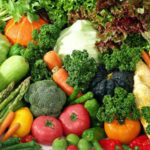Is eating raw eggs better than cooked eggs?
Dr. Nguyen Hoai Thu (Vietnam Institute of Applied Medicine) has shared that the nutrients in raw eggs and cooked eggs are the same. Both raw and cooked eggs contain calories, protein, fat, vitamin A, vitamin B2, vitamin B5, vitamin B12, folate, phosphorus, selenium… The important thing to note is that most of the nutrients are concentrated in the yolk.

A raw egg contains 147mg of choline. Choline is an essential nutrient important for healthy brain function and plays a role in heart health.
Raw eggs are also rich in lutein and zeaxanthin. These important antioxidants protect the eyes and reduce the risk of age-related eye diseases.
However, eating raw or undercooked eggs can lead to bacterial contamination. The U.S. Food and Drug Administration (FDA) estimates that around 79,000 people get foodborne illnesses and 30 people die each year from consuming raw eggs contaminated with Salmonella bacteria. Both raw and undercooked eggs can contain Salmonella.
Salmonella bacteria are harmful bacteria that exist both on the eggshell and inside the egg. Salmonella bacteria exist in eggs due to the chicken’s diet, hygiene issues in the coop, and vaccination of the chicken. Therefore, consuming raw eggs can lead to food poisoning.
Eating raw eggs is good for men
There is no scientific evidence yet to confirm that eating raw eggs, undercooked eggs, or dishes made from raw eggs can enhance men’s sexuality.
On the contrary, caution should be taken regarding food safety and hygiene when consuming undercooked eggs. Raw eggs can contain salmonella, a harmful bacteria commonly found on the shell.

In addition, eggs have high levels of protein and cholesterol, so men should not eat too many eggs at once as it can cause bloating, indigestion, increased risk of obesity, gout, and various diseases.
It is recommended to not consume more than two egg yolks per day and not more than three egg yolks per week. Individuals with obesity, high blood lipids, cardiovascular diseases, or high blood pressure are also advised to limit their egg consumption.
For men who want to improve their sexual health, it is important to have a balanced diet, limit fried foods with excessive oil, organ meats, and stimulants. Additionally, paying attention to lifestyle and psychological factors is crucial.
In case of experiencing male reproductive diseases that affect sexual and reproductive life, it is advisable to seek medical advice at healthcare facilities and not rely too much on methods claiming to improve such conditions.







































